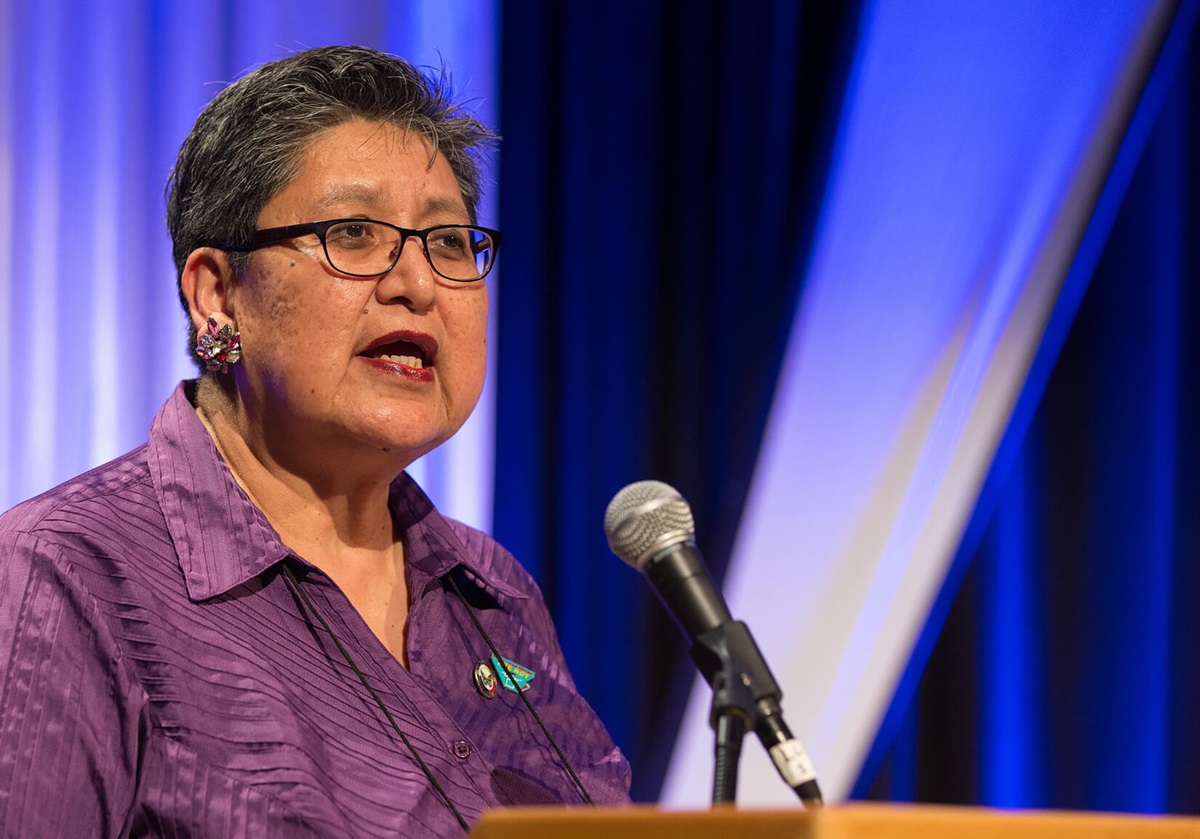To Cynthia Kent, there should be no need for The United Methodist Church to condemn the use of Native American names and mascots for sports teams nor to agree not to hold meetings in cities that are their homes.
“There shouldn’t be a law that binds them,” said Kent, a member of the Southern Ute tribe of Colorado and chair of the church’s Native American International Caucus. “It should be their heart that says ‘I can’t do that.’”
Author of a petition to General Conference 2016 condemning the use of Native American names and mascots as “demeaning and racist,” Kent’s proposed resolution also “asked The United Methodist Church specifically for agencies and entities not to have meetings in cities that have the mascots. We’re so used to saying, ‘It’s OK,’ and I think we’ve gotten to the point where it’s not OK.”
The resolution General Conference did adopt calls the general agencies and related organizations to be intentional about raising awareness of the harm caused by some sports teams with Native mascots and/or symbols. Replacing a statement that expired in 2012, it falls short of asking agencies not to meet in those cities.
Such a rule could be difficult for the United Methodist Board of Church and Society, headquartered in Washington, D.C., home of the Washington Redskins football team, and the United Methodist Board of Global Ministries, which announced in October 2014 plans to relocate from New York City to Atlanta, home of the Atlanta Braves baseball team.
Kent said she is working with Thomas Kemper, Global Ministries’ chief executive, to move any meetings with Native Americans outside of Atlanta. She said Church and Society works to have meetings in nearby cities.
Opposition to the resolution voiced during the plenary session did not surprise Kent. It earlier met with contention from sports fans during committee meetings.
“The worst example was after a heated debate about Native American mascots,” according a report from the United Methodist Commission on the Status and Role of Women in the May 17 edition of the Daily Christian Advocate. “A bit later, having moved on to another topic entirely, one delegate got up and introduced himself as from Atlanta and as an unashamed fan of the Braves.”
Five United Methodist-affiliated colleges and universities have used Native American mascots. At least two have changed their team names.
McMurry University in Abilene, Texas used the nickname “Indians” until a 2005 ruling by the National Collegiate Athletic Association that schools with Native American mascots or nicknames could not play in championship events. The teams are now the “War Hawks.”
At Oklahoma City University in Oklahoma, students were known as “Chiefs” until 1999 when they became “Stars.” The university followed a recommendation that all United Methodist-affiliated schools with Native American mascots change out of respect.
Wallace is staffing the Native American desk at General Conference 2016. Reach him through newsdesk@umcom.org.
Like what you're reading? Support the ministry of UM News! Your support ensures the latest denominational news, dynamic stories and informative articles will continue to connect our global community. Make a tax-deductible donation at ResourceUMC.org/GiveUMCom.




